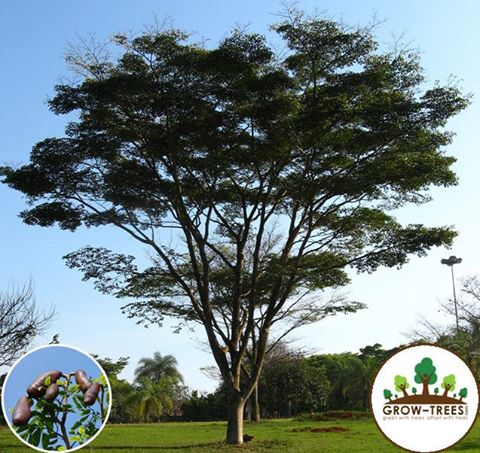
“West Indian locust is native to South America.
It can grow to over 130 feet high. Its fruit is a pod that matures during the monsoons and is a major food for the indigenous population. The pulp contains soluble fibers that dissolve easily in water or milk and is one of the richest vegetable foods for its high concentration of starches and proteins. Despite its unpleasant smell, the pulp is sweet to taste and can be eaten raw, dried or made into powder to be added in cookies and soups.
Other names are Jatoba and also Old Man’s Toe for its unappealing odour of the edible pulp.
In local medicine, the bark and sap are used to treat coughs, the fruit to treat mouth ulcers and the leaves and wood to treat diabetes. Besides being used to give energy and stamina, jatobá tea has been used for centuries as a tonic for the respiratory and urinary systems by the indigenous people of the Amazon Basin. ”